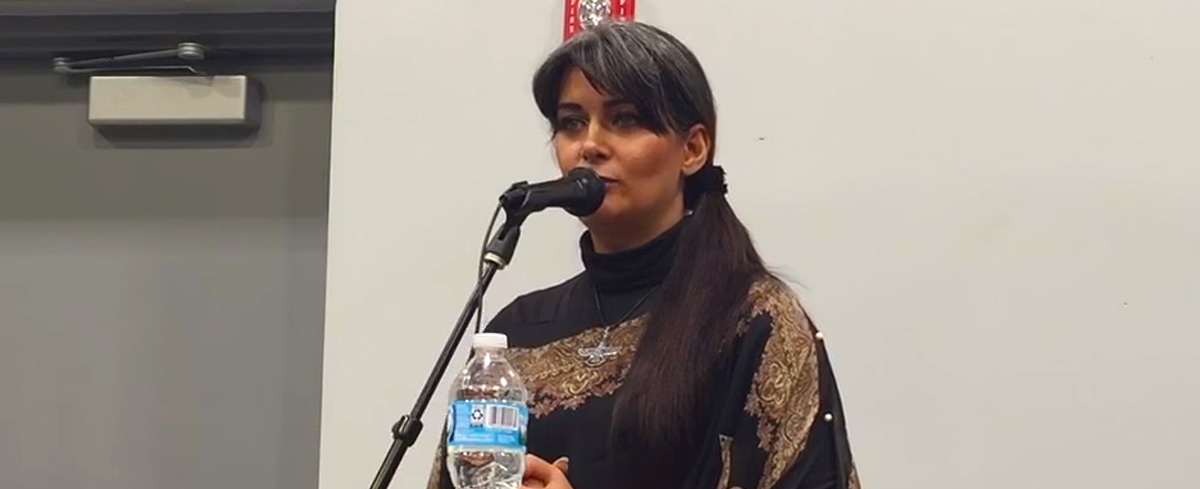It’s becoming more obvious with each passing year, and just about everyone in the West will agree: to be a Christian means to walk out of step with mainstream culture.
It’s such a fixed feature of modern life that Christians have adapted a variety of solutions to this dilemma. Some believers relish the opportunity to cause unnecessary trouble. Others run scared—and in doing so, they compromise their stand for Jesus. Both extremes do damage to the cause of Christ.
So how can we walk the middle road? The answer to this begins with properly understanding our calling as Christians. Why do we clash with the current culture?
Following in the footsteps of Jesus certainly means acting with kindness, compassion and care. But don’t forget that Jesus was also a magnet for controversy. There is simply no way to avoid this. If we follow him, we will be too.
Acts 17:1-9 paints this picture precisely.
Paul and Silas are visiting the city of Thessalonica. They make a persuasive case for the gospel and win many hearts and minds to the way of Jesus. And without intending to, they also cause a stir.
The truth is that if we are true to our calling like the early church was, we can expect the same as them. We should aim to be convincing; we can be confident of our message; and like it or not, we will be controversial in the process.
Called to be Convincing (vv.1-3)
“As was Paul’s custom, he went to the synagogue service, and for three Sabbaths in a row he used the Scriptures to reason with the people. He explained the prophecies and proved that the Messiah must suffer and rise from the dead. He said, ‘This Jesus I’m telling you about is the Messiah.’”
Paul reasoned, explained and proved. These shouldn’t be dirty words for Christians. Following Jesus is a heart journey, to be sure. But it also requires our brains.
Like Paul, we are called to be convincing. Our aim is to help people see that the good news of Jesus makes sense to a world starved of meaning. We don’t need to know all the answers, and we certainly can’t argue anyone into the kingdom.
But God has entrusted to us the most relevant, reasonable and compelling way of life the world has ever known. Christianity isn’t a ‘leap into the dark’. It’s a very sensible step into the light. So let’s make our best case for that, as the apostles did.
In the process, there’s no need to trust our own prowess or persuasiveness. If there’s anything we learn from the book of Acts, it’s that proclaiming Jesus is a Spirit-empowered activity.
Called to be Confident (v.4)
Consider the extraordinary outcome in Thessalonica:
“Some of the Jews who listened were persuaded and joined Paul and Silas, along with many God-fearing Greek men and quite a few prominent women.”
In the short time that Paul and Silas visited this city, a new church sprang up. The gospel is powerful. It transforms lives and whole communities. This is why Paul calls the gospel, “the power of God at work, saving everyone who believes.” It’s a message we can have confidence in.
My Dad is a very skilled gardener. I am not—but I have tried. One year when I was renting with friends, I decided to plant a vegetable patch. Dad happily shared with me with seeds and compost. I dug up the soil and planted tomatoes, carrots, beans and broccoli.
As time went on and my study commitments took over, I neglected to pull out weeds, and I watered my garden with less and less frequency. Eventually, everything I planted withered and died—if the bugs hadn’t eaten it first.
But then pumpkins started springing up everywhere, even though I had never planted them. Soon there were pumpkin vines crawling all over my garden, and even under the fence and into the carport. I deduced, of course, that there must have been pumpkin seeds in Dad’s compost.
Through my little failed project, I learned that even if my gardening abilities are terrible, I can always count on compost from my Dad.
The gospel is quite the same. Like Dad’s compost, the message of Jesus has a power all of its own. Whenever and wherever it is proclaimed, God is at work by his Spirit to bring people to faith. We can have confidence, because the gospel doesn’t depend on our faithfulness, but God’s.
Called to be Controversial (vv.5-9)
Look what happens next:
“But some of the Jews were jealous, so they gathered some troublemakers from the marketplace to form a mob and start a riot… ‘Paul and Silas have caused trouble all over the world,’ they shouted, ‘and now they are here disturbing our city, too.’”
More fascinating still is the crime these Christians were accused of: “They are all guilty of treason against Caesar, for they profess allegiance to another king, named Jesus.”
All this talk of caesars and kings can sound worlds apart from our own, but in fact it’s remarkably similar. In the Roman Empire, just like today, people were free to believe in and worship any gods they wanted to. Tolerance and diversity were the catch-cry of the day.
There was only one condition: whichever gods you worshipped, whatever you believed or practised, you had to acknowledge Caesar as Lord.
It was common for Roman soldiers to march into village centres, carrying an altar with a clear demand: “Pay homage to Caesar!” One by one, under pain of death, citizens would approach the altar to sprinkle incense and solemnly declare, “Caesar is Lord.”
For refusing to make this confession in either word or deed, eleven of Jesus’ twelve disciples were killed, and countless more besides. Fortunately, the price most of us pay to follow Jesus is nothing like that. But the Christian’s clash with the current culture is just as real.
As in Rome, we are free to follow Jesus, so long as we concede that Jesus is just one of many ways, and not the way, the truth and the life. In any age, when diversity and tolerance are prized as the highest virtue, it can sound like treason to declare that Jesus alone can save.
When we do—ironically—there is not much tolerance given to Christians.
Let’s be clear though: we shouldn’t go looking for trouble. Scripture says:
- Let everyone see that you are considerate in all you do.
- Do all that you can to live in peace with everyone.
- Always try to do good to each other and to all people.
But Scripture also declares that Jesus is Lord. And if that’s true, then the Caesars of our day are not. Regardless of whether they are despots or dogmas.
When we accept this and give ourselves permission to be controversial—come what may—we’re actually set free. We no longer need to struggle for the world’s acceptance where we were never promised it.
Next time you’re faced with hostility for following Jesus, be encouraged.
Like the early believers, you’re called to be convincing. You can be confident that the message you carry will change lives. And if you are controversial as a result, rest assured that Jesus is big enough to handle it.
He’s king, remember?
















